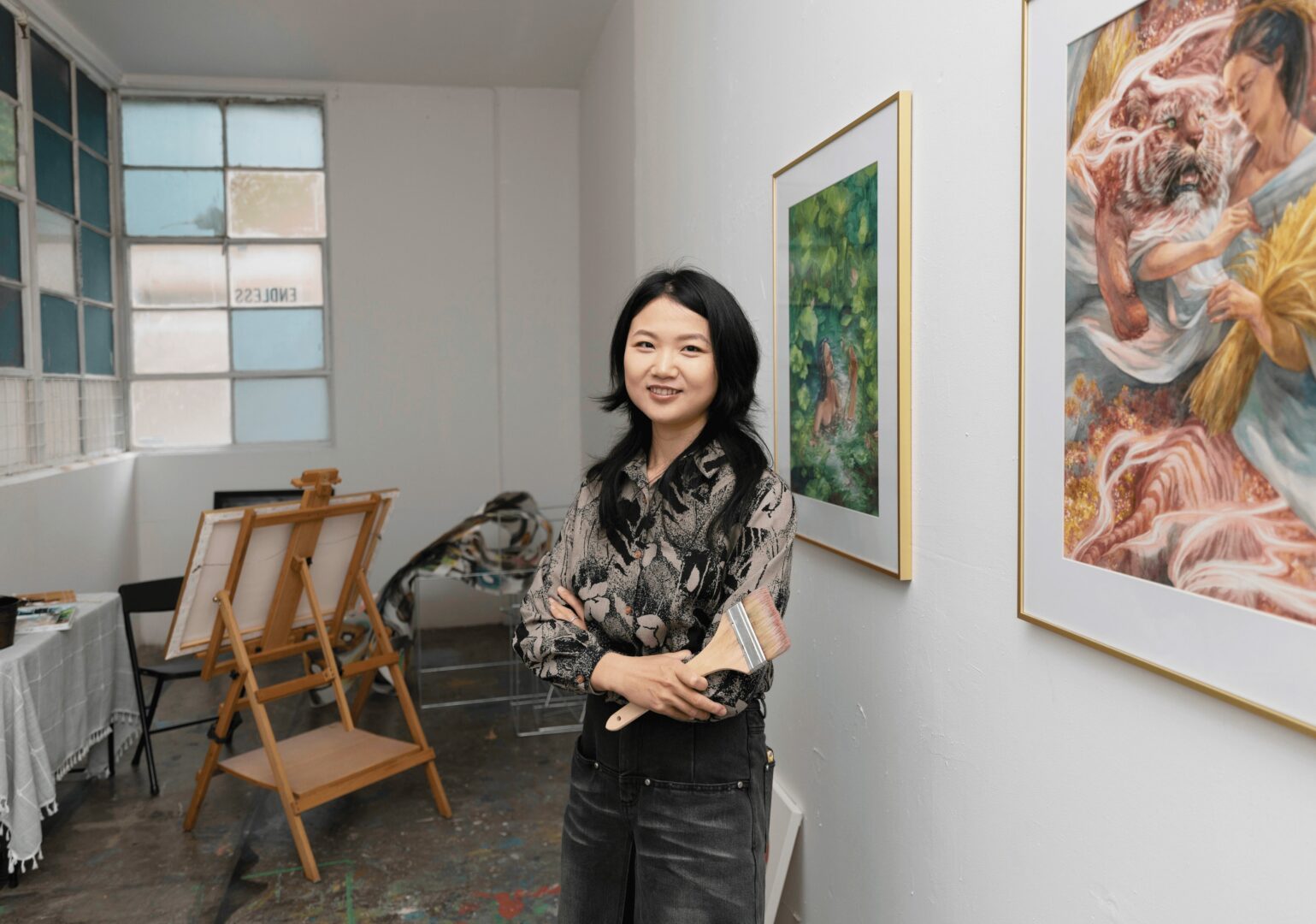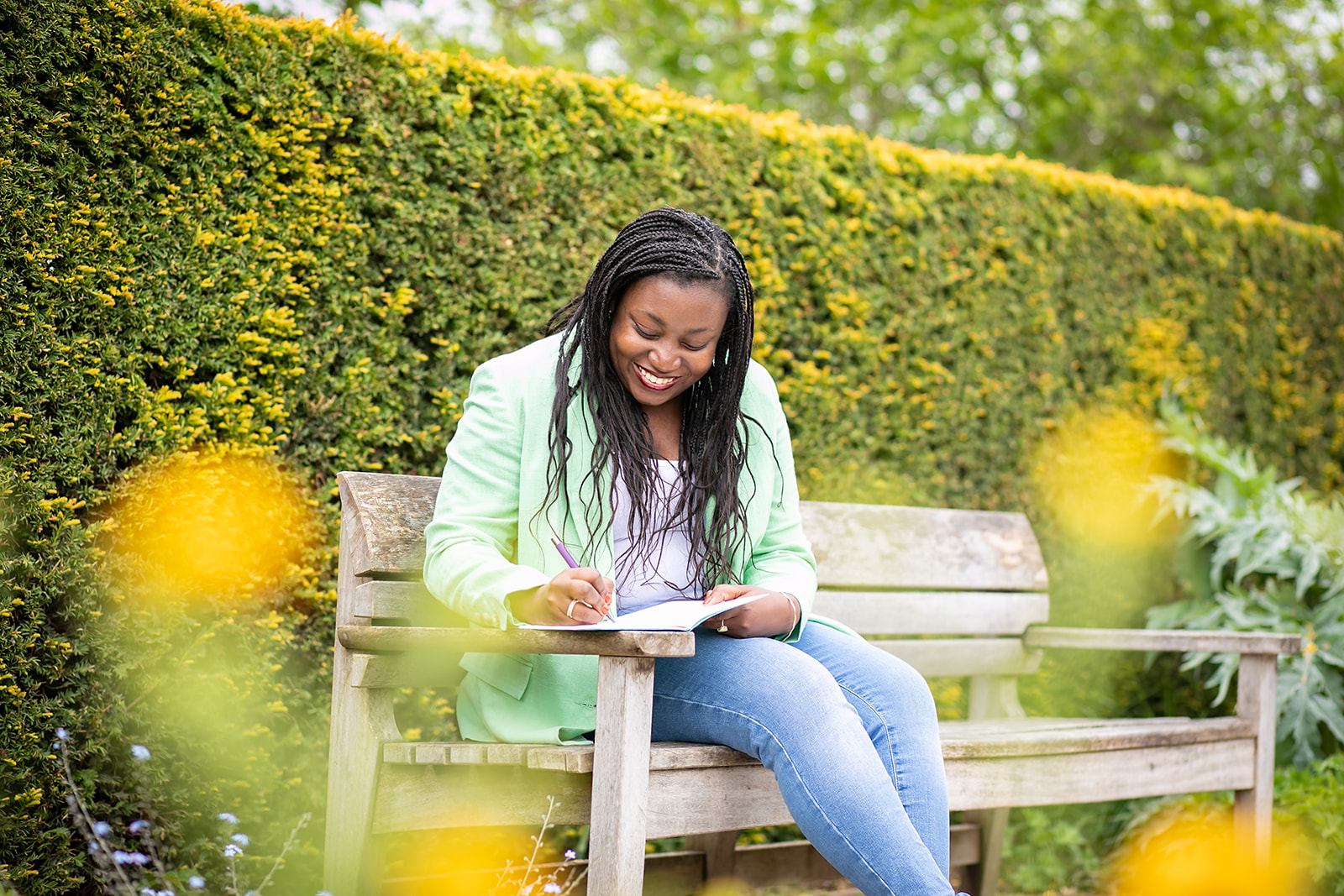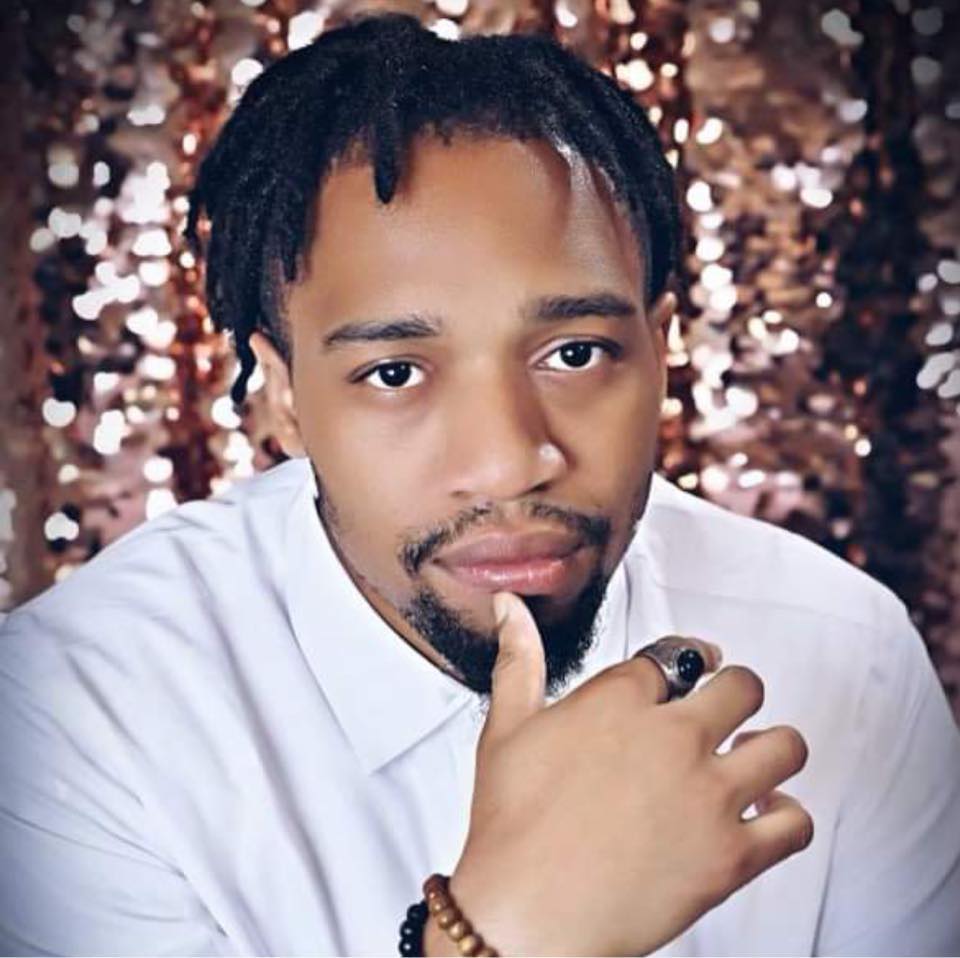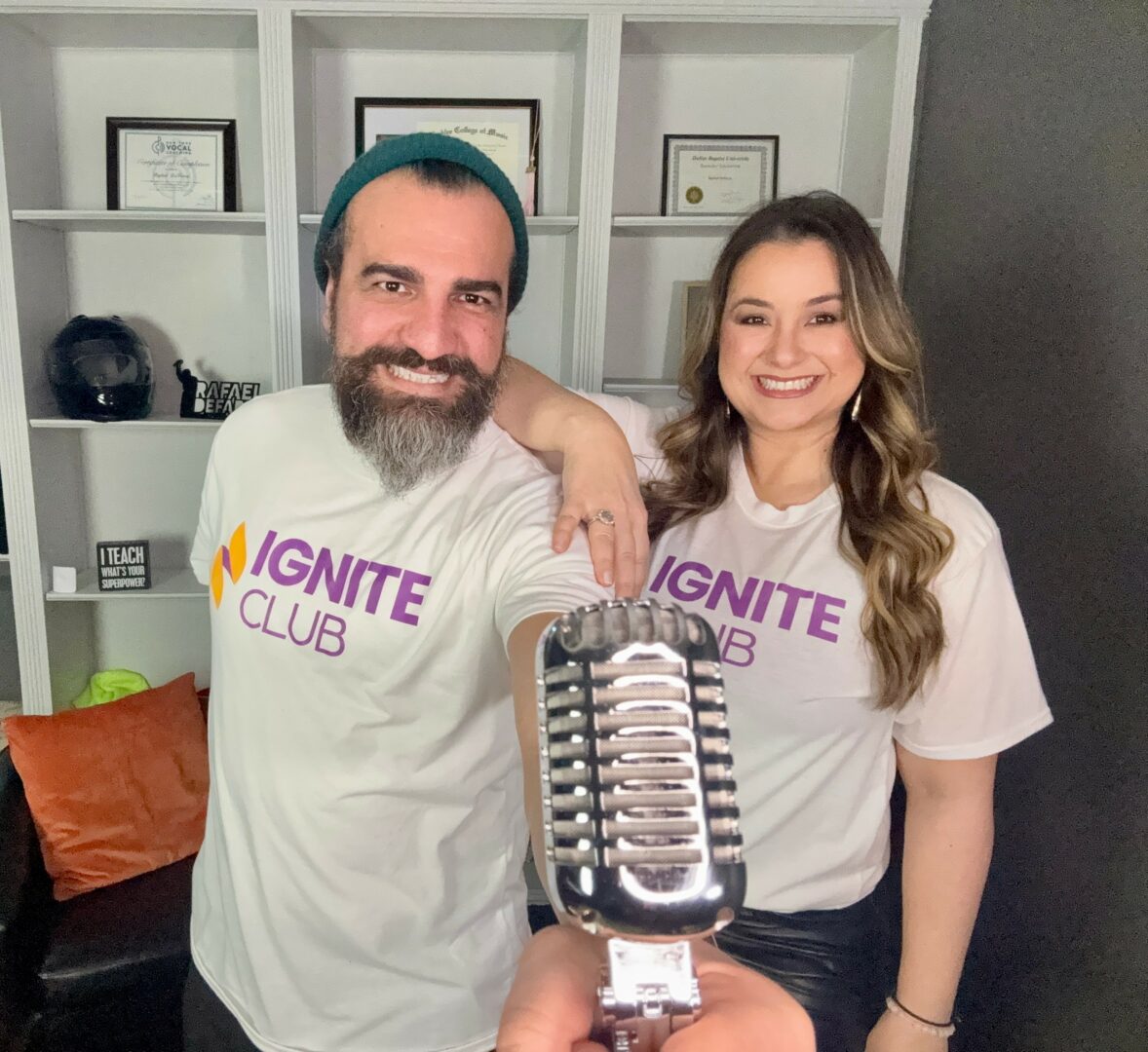Alright – so today we’ve got the honor of introducing you to Yuting Wang. We think you’ll enjoy our conversation, we’ve shared it below.
Yuting, thrilled to have you on the platform as I think our readers can really benefit from your insights and experiences. In particular, we’d love to hear about how you think about burnout, avoiding or overcoming burnout, etc.
The first few months after becoming a full-time artist were filled with both excitement and stress. I thought I was finally living my “dream life” and felt I shouldn’t waste a minute. There was a lot to learn and do. I found myself working late nights and weekends, with adrenaline keeping my productivity high while stress gradually wore me down. After just a few months, I was likely already burnt out. I felt fatigued and less motivated, and my creativity suffered as I became less inspired and satisfied with my work. I believed burnout only happened after a long time and not from doing something you love. So it wasn’t until a few months later that I realized and accepted it.
Recognizing the need for change, I first stopped what I was doing and set aside a few hours each day during a week to clarified my goals and set priorities. Even at the very beginning of my career, I needed to be more selective about which courses to take and which shows and events to participate in. I listened to my body and intuition, asking myself why I resisted certain tasks—was I tired, or were these activities misaligned with my goals?
I adopted a growth mindset, trying my best without striving for perfection, especially with new tasks. I also recognized that just like any other profession, there will be certain necessary tasks that I’ll never enjoy doing. So I planned my weeks to balance activities that drain me with those that energize me. Last but not least, I made a conscious choice to schedule time for exercise and resting.
These changes helped me to regain energy and focus, and the quality of my work improved. This experience taught me the importance of balance, self-care, and trusting my inner voice. Since then, I’ve maintained habits that support my overall well-being.
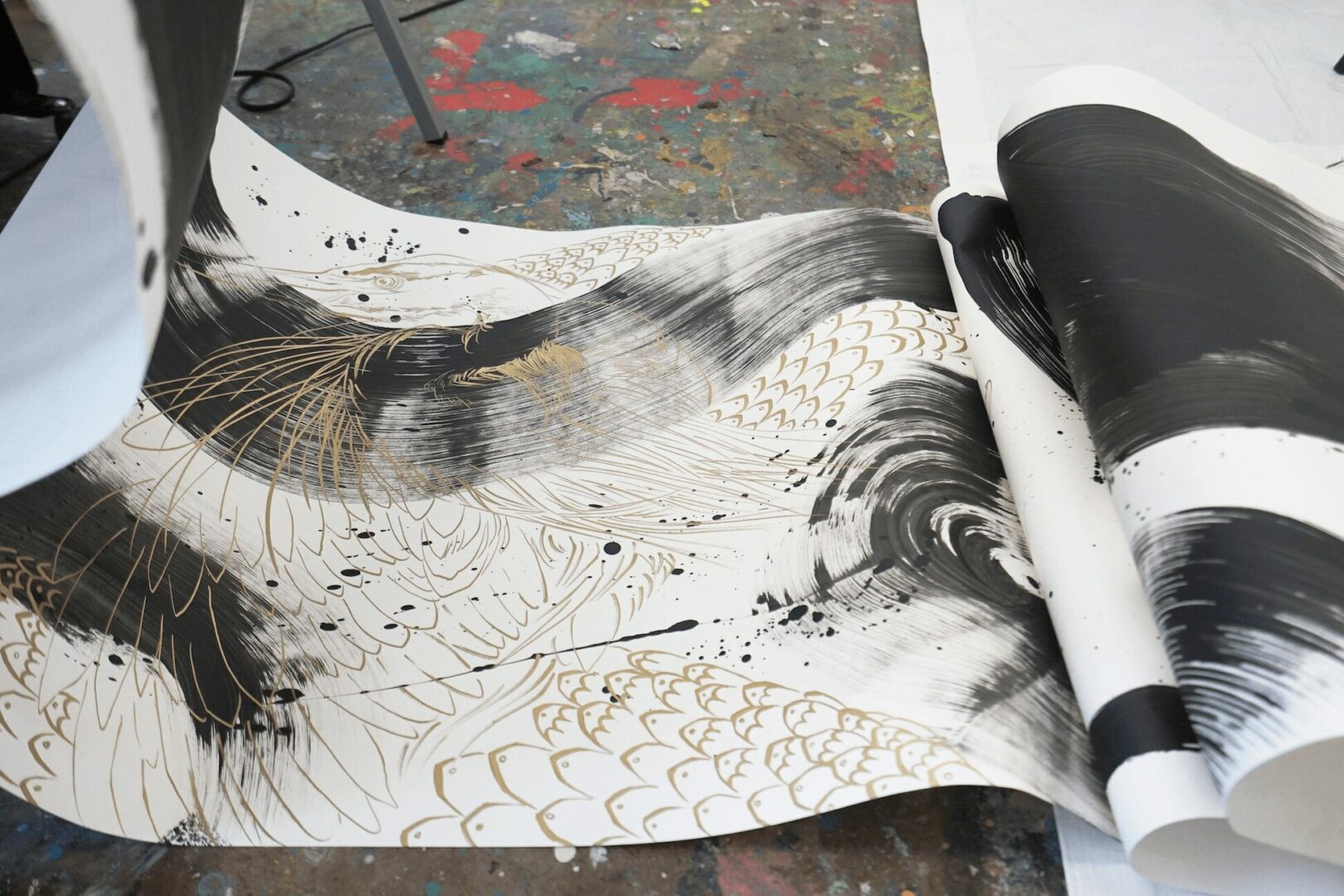
Appreciate the insights and wisdom. Before we dig deeper and ask you about the skills that matter and more, maybe you can tell our readers about yourself?
Thank you for this opportunity to share my story. As a full-time artist, I explore the intersection of cultural heritage, personal identity, and the dimensions of time and space, primarily through watercolor.
I’ve aspired to be an artist since a young age. However, like many others, my parents didn’t support my dream of becoming a professional artist. I followed a conventional path, studying hard and majoring in engineering in college. In 2014, I came to the US to pursue a master’s degree in Civil Engineering. After graduation, I worked for seven years in a construction company before taking a leap of faith to become a full-time artist in the spring of 2023.
While working, I pursued my artistic education through independent study and workshops. Limited by the amount of time I had during weekday evenings and weekends, I switched from oil painting to watercolor. I felt more like myself working in watercolor, and it has since become my primary medium. My naturally observant and sensitive nature led me to contemplate the disharmony and pain in the world, sparking a strong curiosity about life’s mysteries and a quest for self-discovery. What I enjoy most as an artist is the continual process of self-conversation—questioning and clarifying, examining my beliefs, and confronting my doubts. I believe a great artist is also a philosopher, and a lover of truth. It’s just the truth an artist searches for is often personal and sensual.
I’m now in my second year as a full-time artist. In my first year, I spent more time setting up the business than actually painting. I still have much to learn. This year and possibly the next few years, I plan to focus on refining my artistic vision and exploring the possibilities of watercolor and paper beyond the traditional form. One of my deep desires and long-term goals is to elevate the general appreciation of watercolor, an undervalued medium largely due to historical reasons. Teaching could be a valuable avenue for this goal and I plan to pursue it when I have more bandwidth. I look forward to connecting with people who share similar aspirations and ideas on introducing watercolor to a broader audience and cultivating a community that celebrates its beauty.
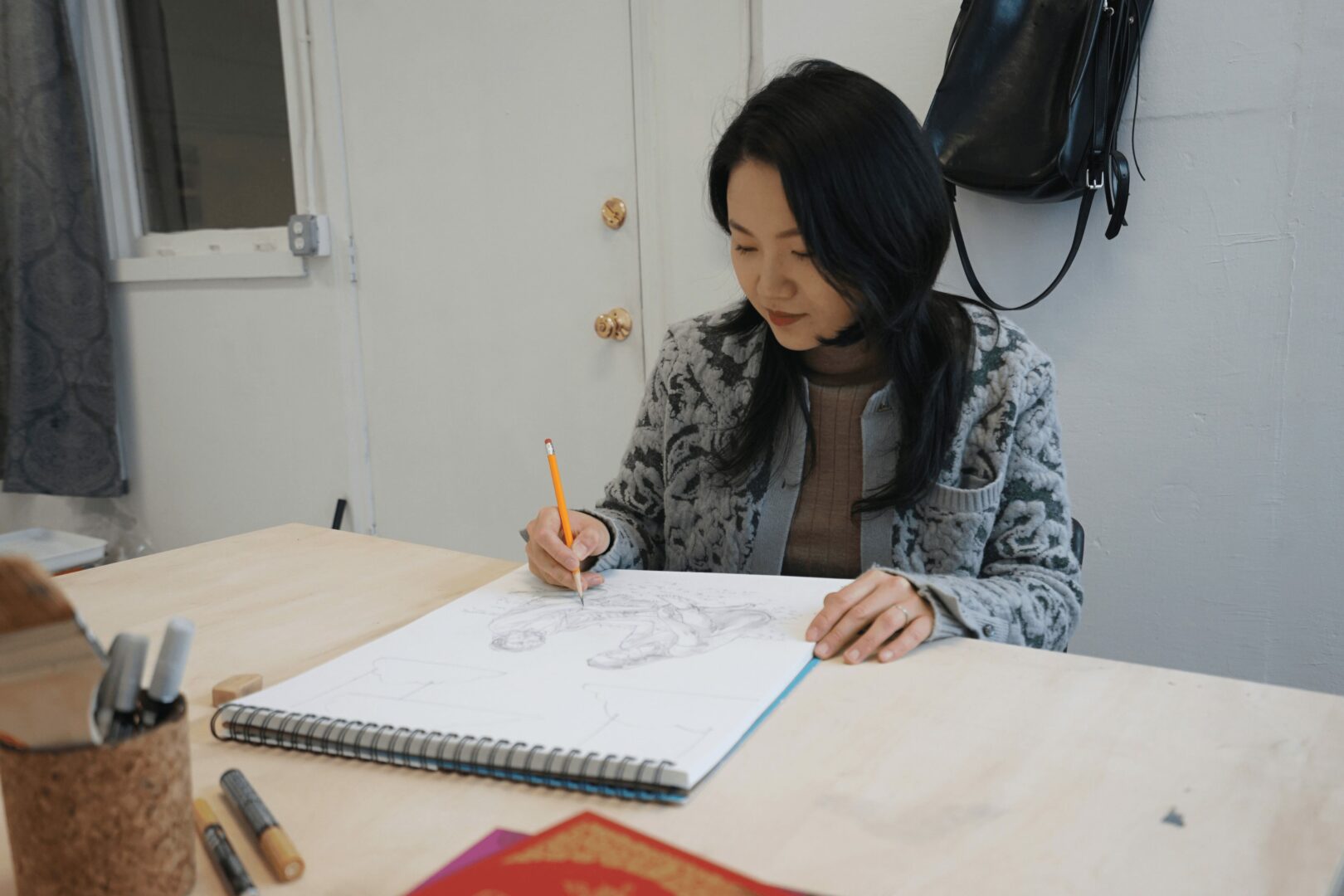
If you had to pick three qualities that are most important to develop, which three would you say matter most?
Reflecting on my journey, these three skills and qualities have had the most impact on my career so far.
1. Communication skills. English being my second language once made me shy about initiating conversations. I’m appreciative of my previous working experience as a construction project manager, which trained me to overcome my fear. Making countless cold calls and collaborating with diverse people taught me to communicate clearly and effectively. This skill is indispensable for building and nurturing relationships in the art world.
2. Cultivating an analytical yet non-judgmental mindset. Over the years I’ve learned that being overly critical about my art or myself only undermines my confidence.I can’t shame myself into being a better artist. Instead of labeling my work as good or bad, I now focus on understanding what and how I can make it better. At the same time, it’s important to affirm the things I like and the aspects I did well. This approach encourages growth and fosters a positive creative environment.
3. Having a personal routine. Although I don’t work a nine to five job anymore, having a routine helps me balance multiple responsibilities while maintaining a regular art practice. The routine automates many tasks and reduces the number of decisions I need to make each day, so I don’t need to rely on willpower and self-discipline as much. This approach allows me to focus my energy on creative endeavors and long-term projects without feeling overwhelmed.
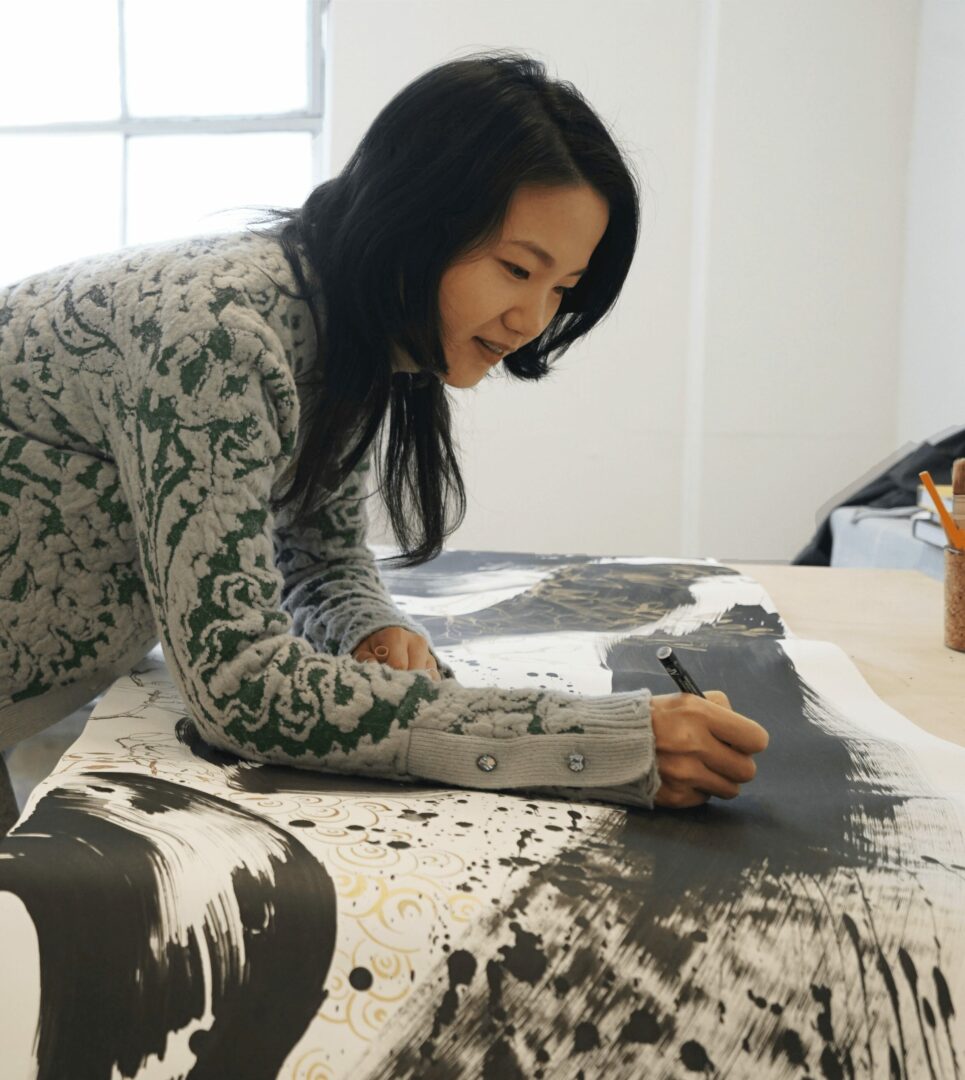
Do you think it’s better to go all in on our strengths or to try to be more well-rounded by investing effort on improving areas you aren’t as strong in?
Firstly, I think it depends on your industry. For artists, I believe it’s better to go all in on our strengths first. The art world can be highly competitive, and one way to stand out is by developing a unique voice and finding your special niche. A common question new artists ask, which I also asked when I was starting out, is how to find their style. There are many good advice on this topic, but what worked best for me was focusing on my strengths. It’s also a form of self-affirmation that helps build my confidence. I found that my strengths can usually carry me a long way before my weaknesses become major roadblocks. It’s not too late to address those weaknesses when they actually start hindering my progress or overshadowing my strengths.
Additionally, modern communication technologies have made collaboration and outsourcing much easier and more accessible. While much of an artist’s work is done alone, you don’t need to do everything yourself. By focusing on what I do best and enjoy the most, I get more satisfaction from my daily work and am less likely to experience burnout.
Contact Info:
- Website: https://www.yutingwangart.com/
- Instagram: https://www.instagram.com/yutingwangpainting
- Facebook: https://www.facebook.com/yutingwangart/
- Linkedin: https://www.linkedin.com/in/yutingwangart/
- Other: Cara: https://cara.app/yutingwangart
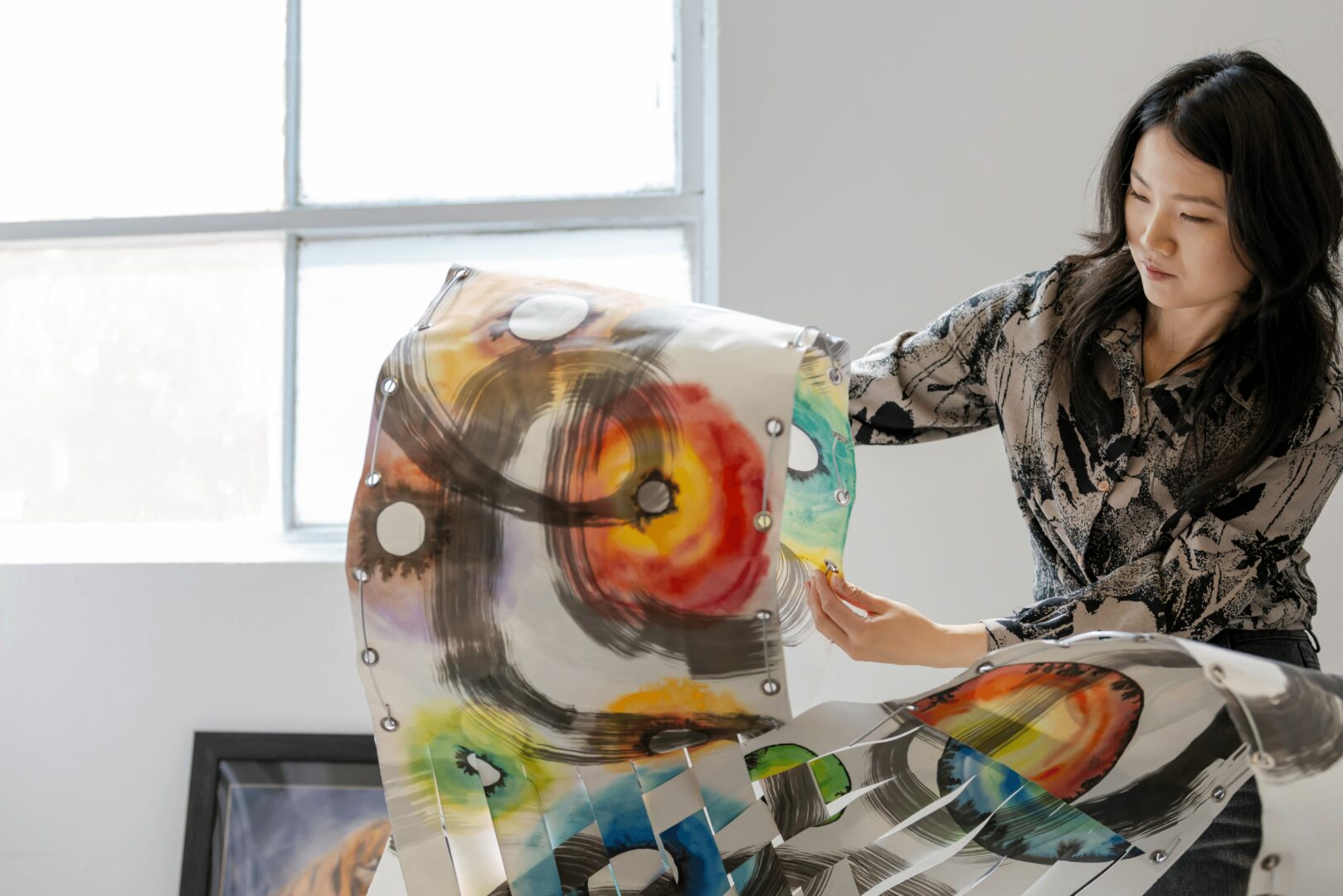
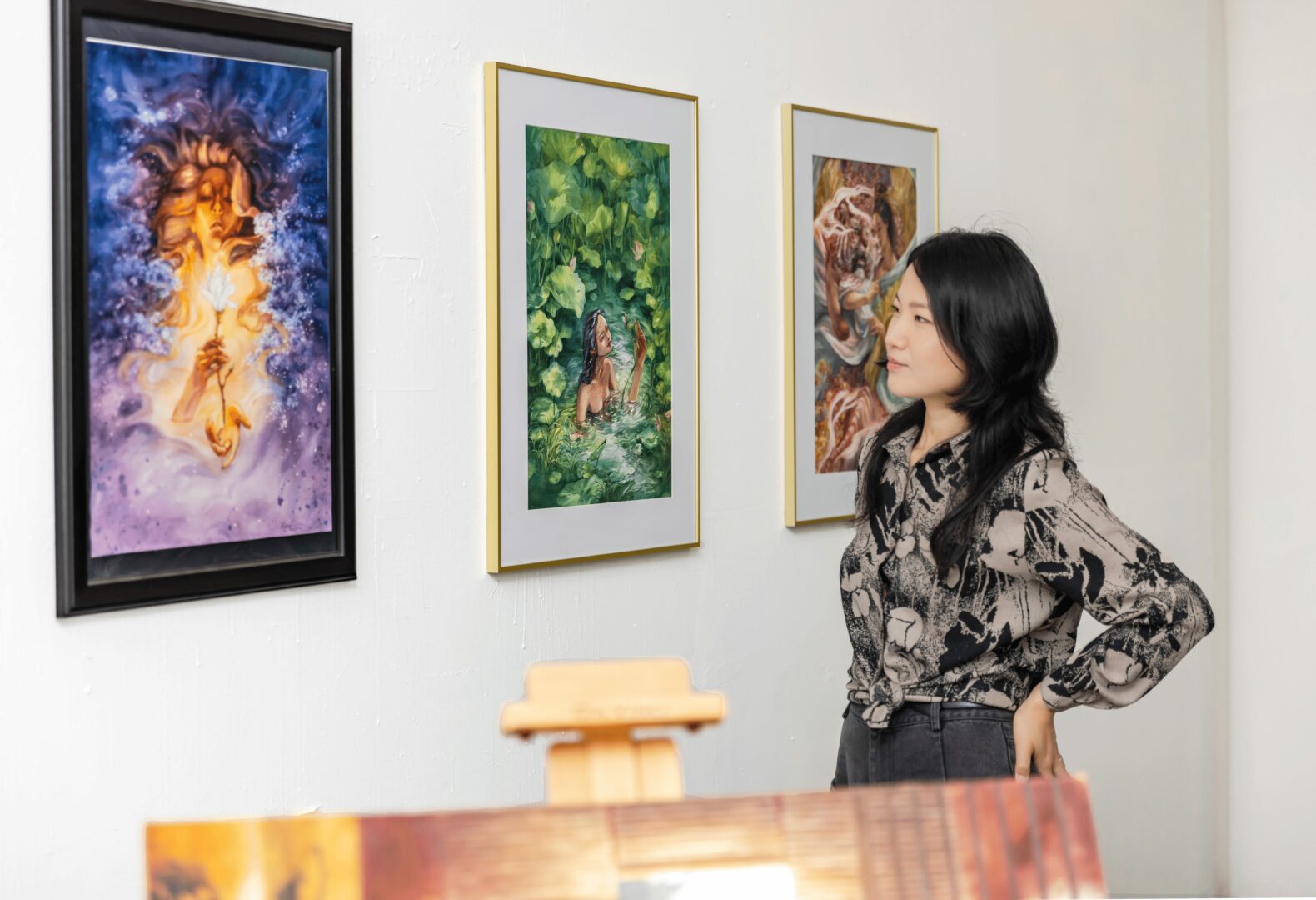
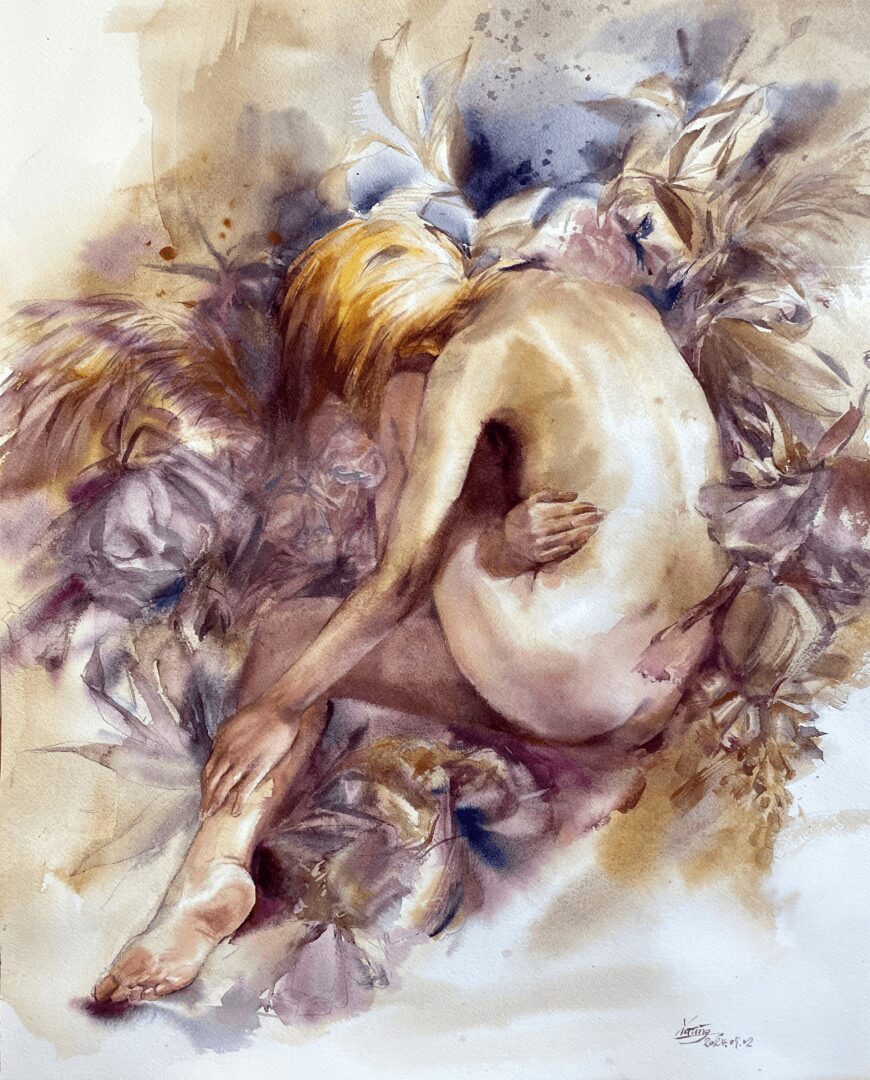
Image Credits
Aaron Alvarez Mendoza
Xiao He
so if you or someone you know deserves recognition please let us know here.

